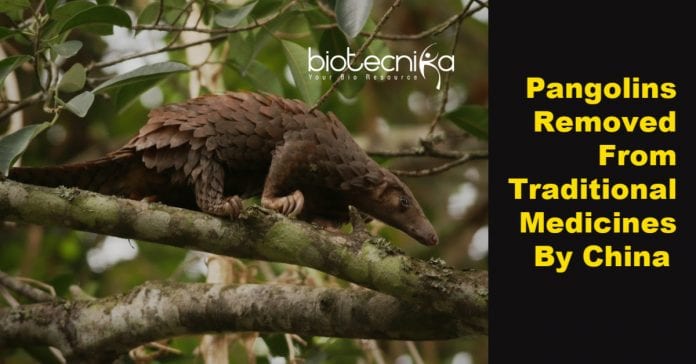Endangered pangolin removed from traditional medicines in china
Pangolin parts have been removed from the official list of traditional medicines by China, days after increasing lawful protections on the jeopardized animal.
The state-owned Health Times reported pangolins were excluded from the official Chinese Pharmacopoeia this year, in addition to compounds including a medication produced with bat feces.
The world’s most trafficked animal – pangolin, is assumed by some researchers to be the possible host of the novel coronavirus that emerged last year at a market in China’s Wuhan city.
In Asia and Africa, there are 8 types of pangolin. Till now, 3 species of pangolins – the Chinese pangolin, Philippine pangolin, and also Sunda pangolin found throughout southeast Asia are entitled as critically endangered by the International Union for Conservation of Nature. The 5 species remaining comprising of the Indian pangolin are entitled as either endangered or vulnerable.
The scales of pangolin are made of keratin, the same material found in human fingernails as well as rhinoceros horn. The traditional Chinese medicine promotes the belief that they minimize inflammation and enhance blood circulation.
As pangolin’s body parts are typically utilized in typical Chinese medication, its body parts fetch a high
rate in the black market, although researchers claim they have no therapeutic value.Due to its threatened status, China’s forestry authority gave pangolins the highest degree of protection in the nation on Friday.
Health Times reported, “Depleted wild resources” are being taken out from the Pharmacopoeia, although the exact factor for the removal of pangolins was uncertain.
Citing the risk of diseases spreading to humans, recently China has prohibited the sale of wild animals for food, however, the trade remains legal for other purposes including conventional medicine and research.
China’s move to upgrade protections for the pangolin is “Highly welcomed”, calling it a “crucial respite” from the prohibited pangolin profession, said the World Wide Fund for Nature.
Author: Sruthi S






























